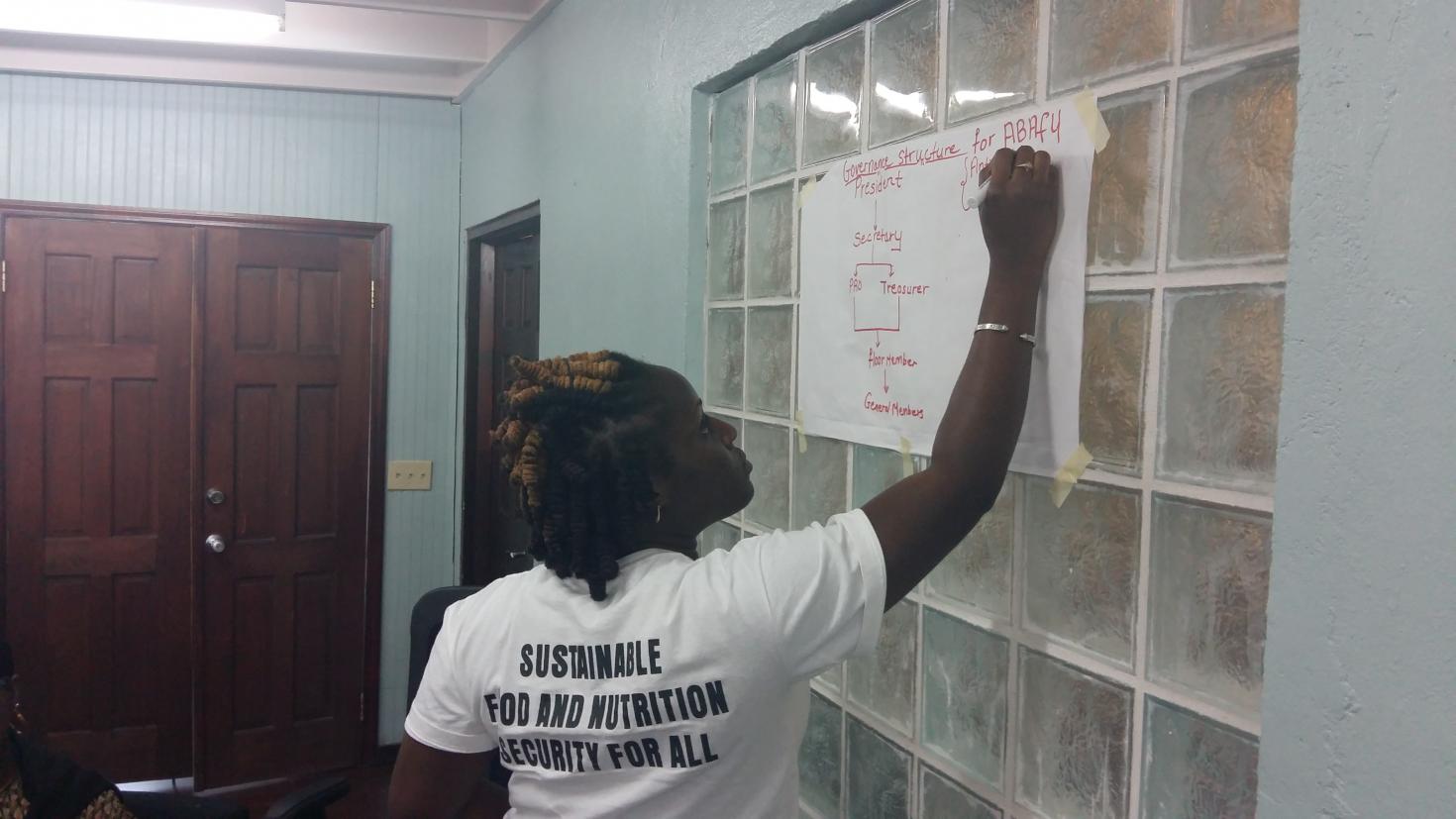A national training event focused on the requirements for improving governance in producer, enterprise and member participation.

Antigua and Barbuda. Members of four producer organizations are now equipped to improve their governance and operational procedures, after receiving training in Antigua and Barbuda from the Inter-American Institute for Cooperation on Agriculture (IICA).
The objective of the training was to help participants to realize the power of organization and its role as a vehicle of sustainable development for the agricultural sector.
The activity helped to familiarize participants with key principles of good governance, pinpoint weaknesses in their present governance structures, and highlight areas for improvement of governance within their respective organizations.
A total of 14 participants were drawn from the Antigua and Barbuda Network for Rural Women Producers/Agro-Processors (ANBNROP), Antigua and Barbuda Agriculture Forum for Youth (ABAFY), Caribbean Farmers Network (CaFan), South Central Farmers Network (SCFNW). Also present were technicians from the Ministry of Social Transformation and Human Resource Development – Community Division and the Ministry of Agriculture Land, Fisheries and Barbuda Affairs (MALFBA), who regularly work with those groups.
The training was supported under IICA’s flagship project on Competitiveness and Sustainability of Agricultural Chains, and the Agriculture Policy Programme (APP) of the 10th European Development Programme (EDF).
An interactive training event
The participants in the two-day event are now equipped to:
- Understand the role and fundamentals of good governance within an organization
- Understand the roles and responsibilities of the Board of Directors;
- Understand the roles and responsibilities as individual members of the organizations;
- Apply skills and knowledge for enhanced participation in the governance of their organization.
The National Value Chain Facilitator (NVCF) for Antigua and Barbuda, Pamella Thomas, said that the workshop had been very insightful, particularly with respect to the Local Producers Organizations Governance system.
“It allowed the participants to revisit their own structures and to work to strengthen the weaknesses identified, as well as to further reinforce their strong points”, she said.
More information:











